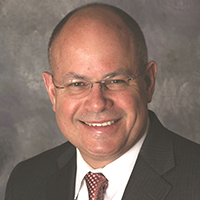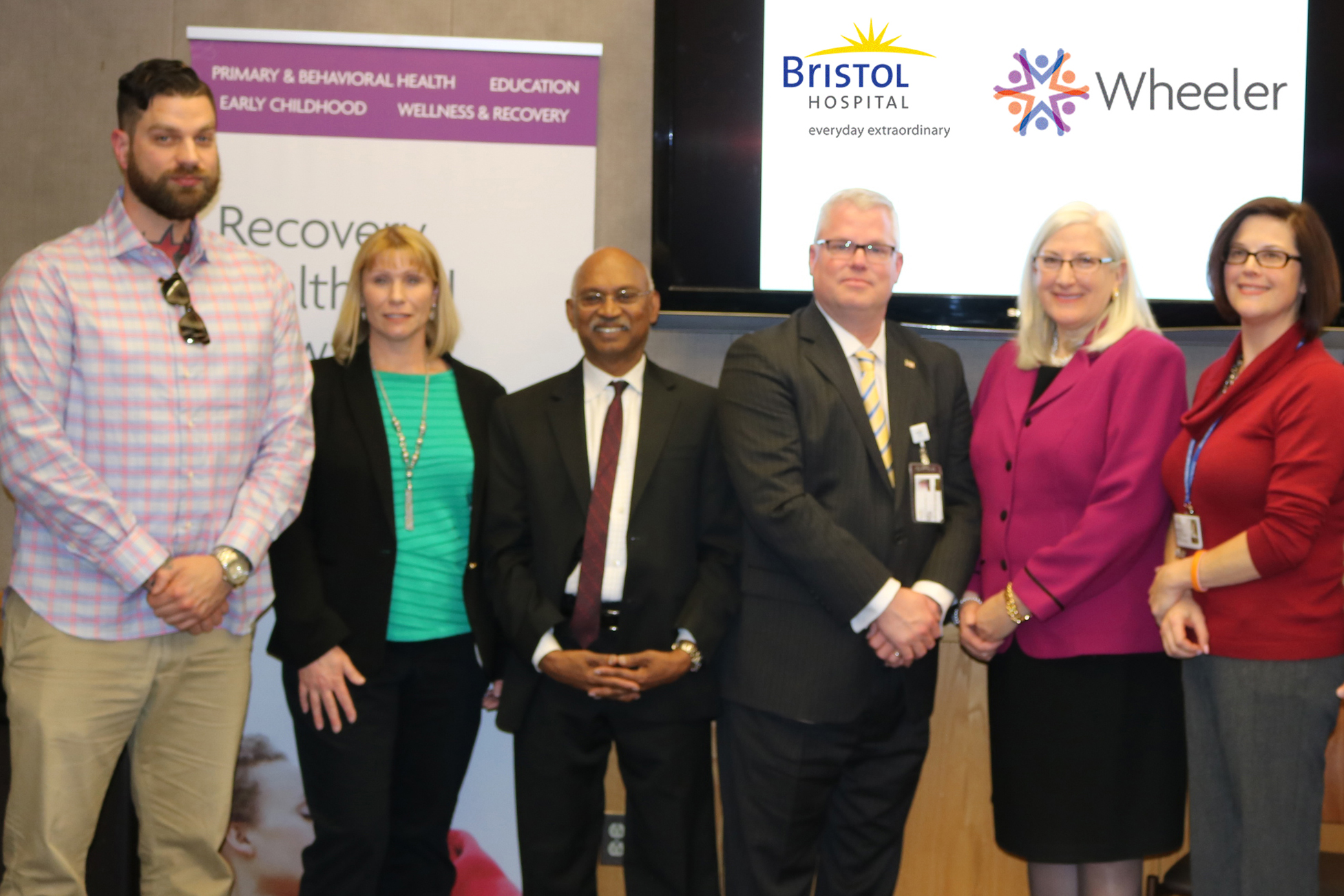Community Catalyst: Bristol Hospital and Wheeler: A Creative Approach to Care

The most pressing community issues often require leaders and organizations to rethink and reimagine. This is how as Kurt A. Barwis, FACHE, president and CEO of Bristol Hospital and Health Care Group, approaches problem-solving. A reinvigorated partnership between Wheeler and Bristol Hospital exemplifies creativity, giving rise to programs that serve the whole-health needs of individuals and families in Bristol and surrounding communities. Wheeler and Bristol Hospital share a long history of working collaboratively. This relationship deepened as the health care landscape changed.
Mr. Barwis, who joined Bristol Hospital in August 2006, remembers his first meeting with Wheeler President and Chief Executive Officer, Susan Walkama, LCSW.“Susan approached me about developing a partnership shortly after I took this position,” said Barwis. “With significant shifts in the health care environment—and many more expected—Wheeler was looking for innovative, effective ways to meet the needs of our most vulnerable residents.”
This discussion would eventually form the foundation for local delivery of integrated care—a systematic coordination of primary and behavioral health care.*
”As an organization concerned with outcomes and reducing disparities in care, we asked ourselves if we were doing enough to meet the needs of the community,” remembered Ms. Walkama. “We decided we needed to do more, and we refined our strategic direction to begin building a more systemic approach to health care. Partnerships with organizations like Bristol Hospital were important building blocks in our efforts.”
In 2013, Wheeler opened its first Family Health & Wellness Center, a federally qualified health care center at 10 North Main Street in Bristol, which offers primary and behavioral health care services, and coordination of and linkages to care in the community. Bristol Hospital was a key partner in this effort.
“When Wheeler opened this facility, we were one hundred-percent supportive,” Mr. Barwis said. “We collaborated closely, especially in the areas of pediatric care and breast health, as well as intervention and treatment for people with chronic disease and addiction issues.”
Two years later, Wheeler and Bristol Hospital partnered to further improve behavioral health crisis services for children, adolescents, adults and families in the Greater Bristol region. Wheeler assumed responsibility for Bristol Hospital’s Emergency Department Crisis Services from 8 am to midnight, seven days a week, providing immediate intervention and connections to community services and resources, including the Bristol Hospital Counseling Center and Wheeler’s Family Health & Wellness Center.
Bristol Hospital is actively engaged in monitoring this effort with a keen eye toward patient readmission rates and patient satisfaction. Since the partnership between Bristol Hospital and Wheeler began, the hospital reports a marked improvement in its Press Ganey patient satisfaction scores.

The Wheeler-Bristol Hospital relationship continues to take on new dimensions. For example, in 2016, both organizations co-sponsored a “Community Conversation on Opiate and Heroin Use and Misuse,” featuring a six-member panel discussion highlighting what individuals, families and communities need to know about opiates and overdose; where to get help; how to support and set limits for those struggling with addiction; and the value of recovery.
“Like anything else, we’ve had success, and we’ve had areas where we still need to make improvements,” said Barwis. “But this doesn’t mean we won’t keep trying. We have to partner broadly and assess our progress on a regular basis to make sure that what we’re delivering, first and foremost, benefits our community.”
Reference:
*www.integration.samhsa.gov, SAMHSA-HRSA Center for Integrated Solution, What is Integrated Care? https://www.integration.samhsa.gov/about-us/what-is-integrated-care






